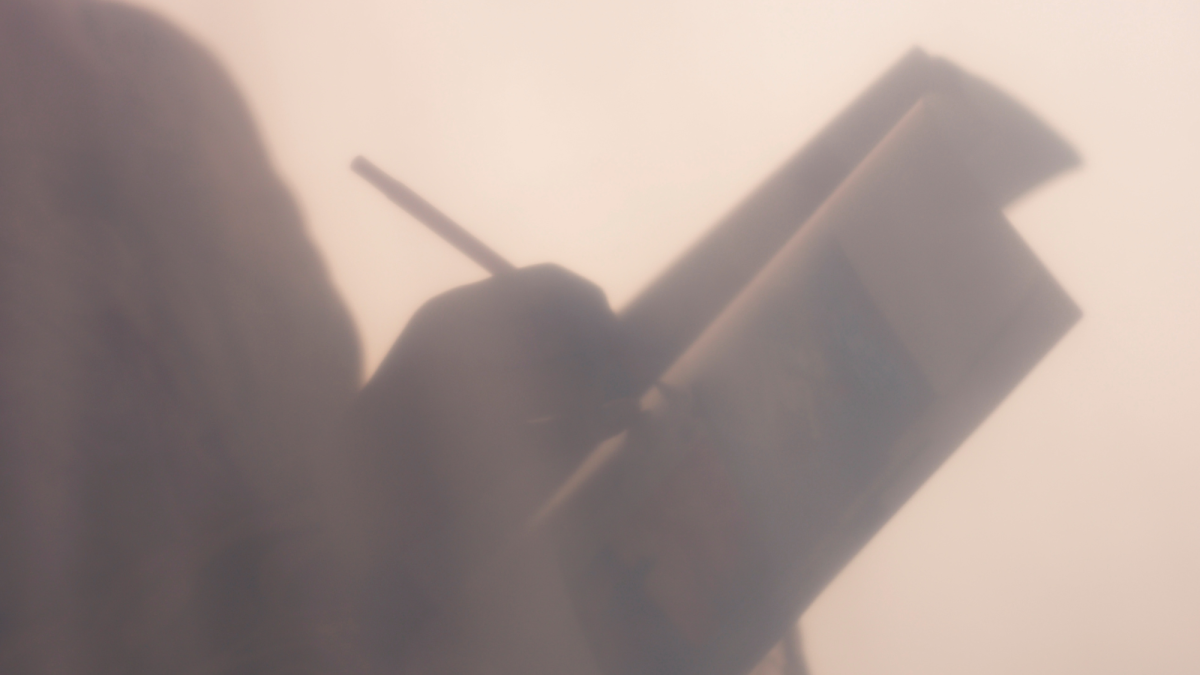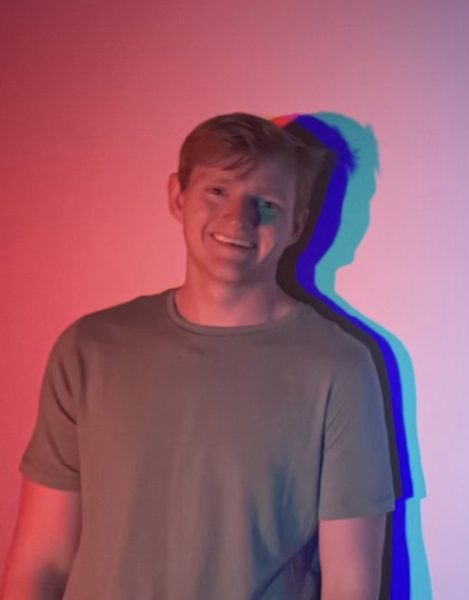Someone had dropped their ADVANTAGE card by my register the other day. Picking it up and looking at it reminded me of where I was a few months ago; I remember scanning keychains and punching in people’s numbers into the register, the heart inside me fading with every scan and punch of a number.
I worked at a local, privately-owned Giant Eagle called The Dirty Bird (by some disgruntled employees) for about two years before starting my job at Home Depot this August. In case anyone reading this isn’t from Western Pennsylvania, Giant Eagle is a supermarket chain that specializes in overpriced groceries. The quirky Route 8 Giant Eagle that I worked at is like most of the others, but the owners decided they would force their minimum wage employees to wear white shirts and ties so the place would look more professional.
Since I was little my family had always visited this same Giant Eagle, at the time I never considered it dirty, not because of the dress shirts, but because kid me didn’t notice the dim lights in the produce section or the unhappy faces of its workers.. My sister and I would race down each aisle as we shopped, trying to see who could grab the most coupons from the coupon thingies hanging off the shelf. You couldn’t get a coupon from a thingie if the other person already went to that one, so you had to make it to the next one faster. We’d help our mom load some of the groceries onto the belt until we got distracted by all the divorced celebrities on the cover of People Magazine sitting next to the coolers of pop and rows of candy we weren’t allowed to have until we got home. Then as they bagged our items we would wander over to the three big dark-looking mirrors that faced the registers, entertaining ourselves with our reflections as we made weird faces and getting as close against the cold glass as we could when we realized there might be something on the other side.
When I grew older, I realized those mirrors were actually a one-way mirror to the manager’s office. I remember the day of my interview, picking out my best button up and imagining the dark room behind the mirror as the manager grilled me with hard to answer questions; “Why would you be a good fit for this company? Racism in America, ain’t that something? Why should I hire someone who doesn’t realize his fly is down?” All this uncertainty, and imagining a room of hostility, just to be sat down in the cafe area and asked how soon can I start. My first year at the Dirty Bird was spent as a cashier, which is just a fancy term for “human robot.”
Cashiering is probably the easiest job in the world, so it’s no surprise to me to see it slowly being taken over by self-checkouts. Typical cashier training involves scanning a Snickers bar in three to five different ways, then telling the new hire effective coping mechanisms for boredom. There exist a few corner cases such as when a customer pays with a check, tax right-offs, or food stamps that new cashiers may get confused about, but ultimately, you become a robot after a few shifts of scanning items. Every item on the conveyor belt becomes a new line of code that you need to write and execute. Most chocolate bars have you moving the flap so you can scan the barcode. Thirty-two packs of water have the barcode on the top, so you don’t have to take it out of the cart. Pop has it on the side, but the customer never positions twelve packs the right way, so you end up having to take them out of the cart to scan them anyway, then put them back in like a game of Jenga. Don’t even get me started on the codes for produce, bananas are 4011, Honey Crisp apples are 3283, cucumbers are 4062 and so on. Onions are 4166—well, sweet onions anyway. After a while you find ways to make your lines of code shorter and more efficient, and in this case that meant every onion I scanned, regardless of price or actual name, was dubbed by me a sweet onion and would cost accordingly. In case you’re wondering, cashiers do this everywhere. If the customer doesn’t notice it, it didn’t happen.
Every customer that came into my line got the same lines of dialogue. Unless I know you outside of work, you aren’t getting anything more than my automated Dirty Bird voice lines.
“Hello, how are you?” They usually just say ‘good,’ followed by various types of sighs. One time I got a guy who made a suicide joke to me when I asked about his day, gesturing a rope around his neck with his hand. I had never met him before and he said nothing else the entire time besides that. He came back through my line another day, without the invisible noose, and I was relieved to see he’d lived to shop another day.
After my automated greeting I would ask the customer, ever so charmingly, if they had their advantage card.
“Yes,” they would say, not so charmingly. This is the part where they fumble with their keys or purse for way too long, despite knowing they would need the card before they get to the register.
Scan the coffee grounds and put them in a bag, scan the cereal and put it in a bag. Scan, bag. Scan, bag. Scan, bag. When I saw a gallon of milk coming down the belt I would prepare to execute the ‘milk preferences function’: “Would you like your bag in a milk?”
“Huh?” the customer would ask.
Moments like these were when I would become aware of my lines of code; a robot forgetting he’s a robot. The mental wear and tear of the endless customer buffet of bullshit would short circuit my brain and force me to repeat myself: “Would you like your milk in a bag?” Yes or no it doesn’t matter—just some more ones and zeros.
“Cash or card?” is the final jeopardy for every transaction. Millennials get confused when we don’t have Apple Pay, old people don’t know how credit cards work, and I could barely count cash without quadruple guessing myself each time. Math isn’t hard, but the pressure of getting it wrong can get to you, even when you stop caring about your job.
After they pull out their card or I hand them back their change, I send them off on their day with the classic, “Thank you, have a nice day.” Gets ‘em every time. I would watch them leave, everything unique about them fading as they went. By the time I’d ask the next customer for their bagged milk preferences, I had already forgotten about them.
The other part of being a cashier is pushing carts. On a good day, it was nice to be outside. You listened to your own music and put your earbuds away when a manager came around. Company policy states having earbuds in while outside is a safety hazard. This policy was reinforced by a manager who has had several DUI’s. A true role model for safety.
When most new hires start, they feel the need to push as many carts as they can at a time, and that’s because they don’t understand just how LOW the bar is for pushing carts. It was an art form to slack off outside. When I started, my minimum was 5 carts, with a maximum of 10 carts at a time. By the time I left, my maximum was 5, and between every five carts up the hill would be me finding the cart corral with the tallest car parked in front of it, hiding behind it, and playing on my phone until I felt the urge to do my job. Keep just enough carts inside the store so customers don’t get mad, and keep just enough outside to push when a manager walks by, and you’ll be all good to go.
On a bad day, the Dirty Bird parking lot (and its thirty-five-degree incline) became a hellscape, the extremes being in the winter and summer months. Winter was the only time you were happy with the shirt and tie as it gave you an extra layer for your upper body, while your lower body shakes with every step because dress pants aren’t made for the wind and slush of Western Pennsylvania. The carts were endless in December. Everybody and their mothers came in to stock up for holiday break when the college kids came home for a month. Old ladies would complain about the carts being too cold, but you’d already know that if you forgot your gloves that day. Conversely, during the summer we were forced to wear the dress pants in seventy, sometimes eighty-degree weather. It wasn’t until a coworker passive-aggressively wore shorts without asking, that the managers loosened up on the rules. We were told the dress code would be black khaki shorts, and nothing else. No one followed the rules and we chose to sweat in comfy gym shorts instead. The cart pushers all bonded over the new need to apply sunscreen to our pale ass legs, and on the first day I wore shorts outside, multiple customers said they were happy for me. Not like my misery stopped them from shopping anyway.
The job wasn’t rewarding in itself, and neither was the pay. To give them some credit, you get an automatic .25 cent raise every year but after two years I was only making $10.50 an hour. Doing the math, I would have to work there fourteen more years to get to the $15 an hour I make now; I couldn’t let myself stay there for that long. I’ve seen what that place does to people who are there for too long. It’s bad. They start to enjoy their jobs, like they are being brainwashed by their own stubbornness. They buy bright white dress shirts in bulk that fade by the end of the year. Using part of their paycheck to buy a new tie that customers won’t notice under the apron. They’ll invest in knee pads and better shoes fit for stocking the shelves, disregarding the strain it puts on their back despite the investments. All to make the grainy yellow tile seem just a tad bit brighter everyday.
For the good of their sanity, the Dirty Bird boys and girls I worked with were all leaving the nest. The happy-go-lucky girl that every guy lowkey had a crush on quit. The loveable depressed guy who coped with his upbringing through constant sarcasm quit. Even Brandon quit. I didn’t know anything about Brandon. His name probably wasn’t even Brandon, but he quit, too, and that made me realize something: Giant Eagle might be easy, but it doesn’t promote an easy life. Then one day while I was pushing carts I got the news that another Dirty Bird boy I went to high school with, let’s just call him Woodstock, started working at Home Depot for $15 an hour. I decided to put in an application, hoping they didn’t know anything about the local Giant Eagle’s low bar for work ethic.
During the interview they ate up every story I told and said I was a great fit, and I thought so too, but they couldn’t hire me because they were cutting back hours that month and couldn’t fit a new guy into the schedule. I kept my professionalism and said for them to give me a call back, but I was pissed and thought of it as their nice way of wasting my time. I was crushed going into work those next two weeks, knowing I may be stuck here for a little longer as Woodstock and Brandon went on to live happier lives, but luckily, I had my one-week vacation coming up, so maybe it wouldn’t be too bad. I’ve had this week planned since March. My goal was to take the week off and power down, the only lines of code I’ll be thinking about are the ones in front of me on my computer screen, and the only items I need to scan are the bags of chips at self-checkout needed for the bonfire that Saturday.
A week before my vacation I got a call from Home Depot, and they interview me again and I told them I can start in two weeks. That day I smugly walked into my place of work, dressed better than any other time I’ve walked into The Bird off the clock, and asked for a two weeks’ notice form. I’ve heard stories of managers begging or coercing people to stay, but I didn’t get any sort of begging. Writing on the two weeks form “They pay $15 an hour,” left them speechless. They couldn’t argue with what they couldn’t give. The only comment I got from a manager was to look for his cousin who worked there, I think he told me his name was Jeff. In my eight months I’ve worked there, I don’t think I’ve even heard of a Jeff. Jeff, wherever you are, Don says hi…
The only problem was my one-week vacation was supposed to be one of those two weeks, but they still scheduled me for that week, because of what I assumed was spite. I asked the schedule lady Daisy about it. Up until this point, Daisy was the butter to the stale bread that was The Dirty Bird. If you didn’t do any last-minute schedule changes, she would work with you to get you good hours, all while being an understanding, flexible supervisor. She said she forgot about my vacation, but would remove me from the schedule, so I’d get my one week; the problem came when she asked what I was doing for that vacation.
“Oh nothing, just going to take the week off,” was probably the worst thing you could say when your one-week vacation was during your last two weeks. Trying to help us both out, she said that I could work that week and I’d still get the vacation paycheck since I’m leaving, effectively getting two paychecks for the price of one. I took the deal. She gave me the Saturday off for the bonfire and I was set. I would be making bank for my last two weeks as Dirty Bird Boy.
As I scanned some items on Register 17, doubt set in.
“They are trying to swindle me out of my time off,” I told myself.
“But think about it, triple the money,” the other, more greedy side of me said.
“You can’t let them win.”
“But, money—”
It was too late; I had made my decision. I turned off the light on register 17 and made my way over to the front desk; Daisy hadn’t moved in the 15 minutes it took me to decide on my act of defiance. Despite the fact I’d be getting double the compensation, I told her that I’d changed my mind and that I want the one-week vacation instead. I wasn’t about to lose to the Dirty Bird during my last weeks there.
Believing I was swindling her, she got pissed.
After that following week of doing nothing but watching my friends stick fireworks up their asses around a giant fire, I went in to collect my vacation paycheck and found that she didn’t put into the system that I had taken a week of vacation pay, and so I had to survive a week without pay. At this point, I only had a day or two left of being a Dirty Bird boy, so I just laid low and didn’t accuse anyone of hating my guts for wanting to take a week off, despite thinking it. After some phone calls and a few weeks of waiting, I was able to get that last paycheck and I had already begun my orange apron-wearing journey at The Home Depot, as a customer service clerk.
Those two years at The Dirty Bird were my first job experience, and they will always hold a special place in my heart—for being the absolute worst reason to wear a shirt and tie to anything.













